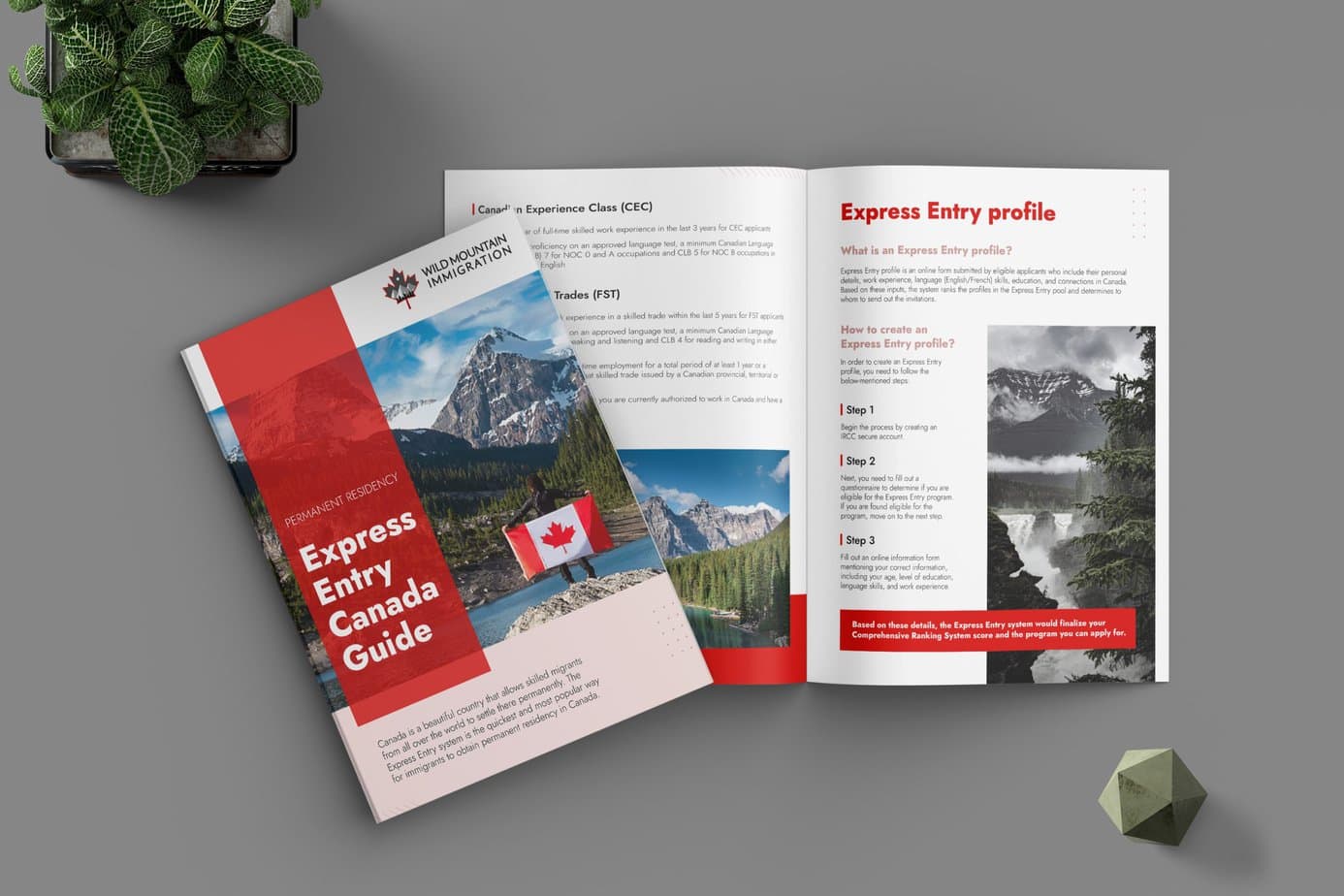When applying for Permanent Residency (PR) in Canada through Express Entry, one of the requirements is to provide proof of settlement funds. This financial requirement is designed to ensure that you have the necessary funds to support yourself and your family upon arrival in Canada.
The settlement funds should be available to you both when your PR visa is issued and when you arrive in Canada. Failure to provide proof of settlement funds may result in the denial of your application. Therefore, it’s crucial to ensure that all essential documents and funds are readily available.
By understanding the proof of funds requirement and preparing accordingly, you can enhance your chances of a successful PR application through Express Entry.
Who needs proof of funds?
You need proof of funds if you are applying under:
Who does not need proof of funds?
You do not need to demonstrate that you possess enough funds to sustain yourself and your family if:
- you’re applying under the Canadian Experience Class or
- you’re authorized to work in Canada and you have a valid job offer, even if you apply under the Federal Skilled Worker Program or the Federal Skilled Trades Program
The application system requires all applicants to submit a proof of funds document. If you are not required to provide this document, you will need to upload a letter explaining your situation. This could include being invited to apply under the Canadian Experience Class or having a valid job offer.
Are you ready to get started, or not sure which option is best for you?
Find out how you can move to Canada.
How much money do you need to prove?
The settlement funds required to support your family’s living expenses in Canada depend on the size of your family. When calculating your family size, you must include:
- Yourself
- Your spouse or partner
- Your dependent children
- Your spouse's dependent children
Even if your spouse or dependent children are permanent residents or Canadian citizens or will not be accompanying you to Canada, you must still include them in the calculation of your family size.
The following table indicates the minimum settlement funds required for immigration to Canada as of June 9, 2022. If you have more funds available, you may list the full amount in your profile or application.
| Family members | Family members funds required (CAD) |
|---|---|
| 1 | $13,310 |
| 2 | $16,570 |
| 3 | $20,371 |
| 4 | $24,733 |
| 5 | $28,052 |
| 6 | $31,638 |
| 7 | $35,224 |
| For each additional family member | $3,586 |
How to prove you have the funds
To meet the settlement funds requirement, the funds you provide must be easily accessible to you. This means that you cannot use the equity on real property as proof of settlement funds, and you cannot borrow the funds from another person. It’s important to demonstrate that the funds can be used to support your family’s living expenses, even if they are not accompanying you to Canada.
If your spouse is accompanying you, you can include funds you have together in a joint account as proof of settlement funds. However, if the funds are in an account under their name only, you must provide evidence that you have access to the funds.
You must prove that the funds are available both when you apply and when (if) we issue you a permanent resident visa. You’ll need to show an immigration officer that you have legal access to the funds and can use them upon your arrival in Canada.
To provide proof of settlement funds, you’ll need official letters from your financial institution(s) indicating:
- Printed on the financial institution's official letterhead
- Contact information of the institution, including address, phone number, and email address
- Your name
- Any outstanding debts such as credit card debts and loans
- For each current bank and investment account, the account number, the date the account was opened, the current balance, and the average balance for the past 6 months

Express Entry Ebook
This comprehensive guide will tell you everything you need to know.
When do I need to prove proof of funds?
To apply for Permanent Residency (PR) in Canada through Express Entry, you are not required to submit proof of settlement funds until after you receive an Invitation to Apply (ITA). However, when creating your Express Entry profile, you must provide an estimate of the amount of money you plan to bring with you to Canada.
Once you receive an ITA, you will have 60 days to submit all essential paperwork, including your proof of settlement funds. It’s important to note that obtaining the necessary documents from your banks may take some time, so it’s best to contact them for proof of funds letters as soon as you receive your ITA. Ideally, your bank statements and letters should be as recent as possible, so it’s best to wait until after you receive your ITA to begin the process.
It’s also important to ensure that the settlement funds are available to you when your PR visa is issued and when you arrive in Canada. If you are unable to provide proof that you have access to the minimum required settlement funds based on your family size when you enter Canada, the visa officer can deny you entry into the country. Therefore, it’s crucial to have all the necessary documents and funds available before leaving for Canada.
Do I need to bring the minimum funds with me?
It’s not necessary to bring the entire minimum amount with you when you arrive in Canada. However, we recommend that you have a recent bank statement readily available in case the immigration officer at the port of entry requests to see it.
If you plan to bring more than $10,000 with you, it’s important that you declare it upon entry, or else you may face a fine. It’s important to note that this declaration is not a form of taxation, but rather a security measure to ensure that the money was obtained through legitimate means and not obtained through illegal or malicious activities.
Can I use gift money as proof?
If you’re seeking immigration to Canada through the Express Entry program, you may be eligible to use gifted funds from an immediate family member (e.g., parent, spouse, sibling) as proof of settlement funds. It’s crucial to establish that the money is a gift and not a loan.
To accomplish this, you must include specific documents with your permanent residency application, including a notarized gift deed that specifies the donor’s name, address, the amount and method of the gift (e.g., cash, cheque, bank transfer), and the donor’s tax information. The deed must explicitly state that the funds are a gift, and the donor won’t claim the money back in the future. Additionally, you’ll need a notarized affidavit corroborating the information in the gift deed and stating that the donor paid taxes on the gifted amount.
You’ll also have to provide a letter of explanation, detailing the source of your settlement funds. This letter should include information about the gift’s amount and who gave it to you, as well as your contact information, so IRCC can reach out to you with any questions or concerns.
If you’ve received a gift from a friend or distant relative, it may be challenging to prove its legitimacy to the IRCC officer. In this case, your letter of explanation should explain why the gift was given to you.
It’s worth noting that if you received the gift money more than six months ago, you may not have to provide detailed explanations, gift deeds, or affidavits. However, if the IRCC requests it, you must be able to provide evidence that the funds are a gift and not a loan.
Conclusion
In conclusion, obtaining Canadian permanent residency via the Express Entry program can be a challenging process. To show proof of funds for Express Entry is crucial, and demonstrating that your finances are legitimate and readily available is vital. Depending on how you receive your funds, additional documentation may be required to prove their legitimacy.
By understanding all the necessary aspects of providing evidence for settlement funds, you can increase your chances of being approved for permanent residency in Canada. Contact our Canadian immigration consultant services for professional guidance and assistance in your application process.
Canadian Immigration FAQs
Find quick answers to the most common questions about Canadian immigration, visas, and permanent residency.
LMIA Costs Explained: How Much Does LMIA Cost in 2024?
For Canadian employers seeking to hire foreign workers, a Labour Market…
Can I Leave Canada After Applying for Spousal Sponsorship?
When applying for spousal sponsorship in Canada, many applicants wonder,…
Who Can Apply for BOWP (Bridging Open Work Permit) in Canada?
If you’re transitioning from temporary status to permanent residence in…
Start Your Canadian Immigration Journey
Our experts make the process clear, stress-free, and successful, so you can move forward with confidence and focus on what matters most.

Contact Us
Immigration questions and service enquiries
Consultation
Speak to an expert
immigration consultant
"*" indicates required fields



